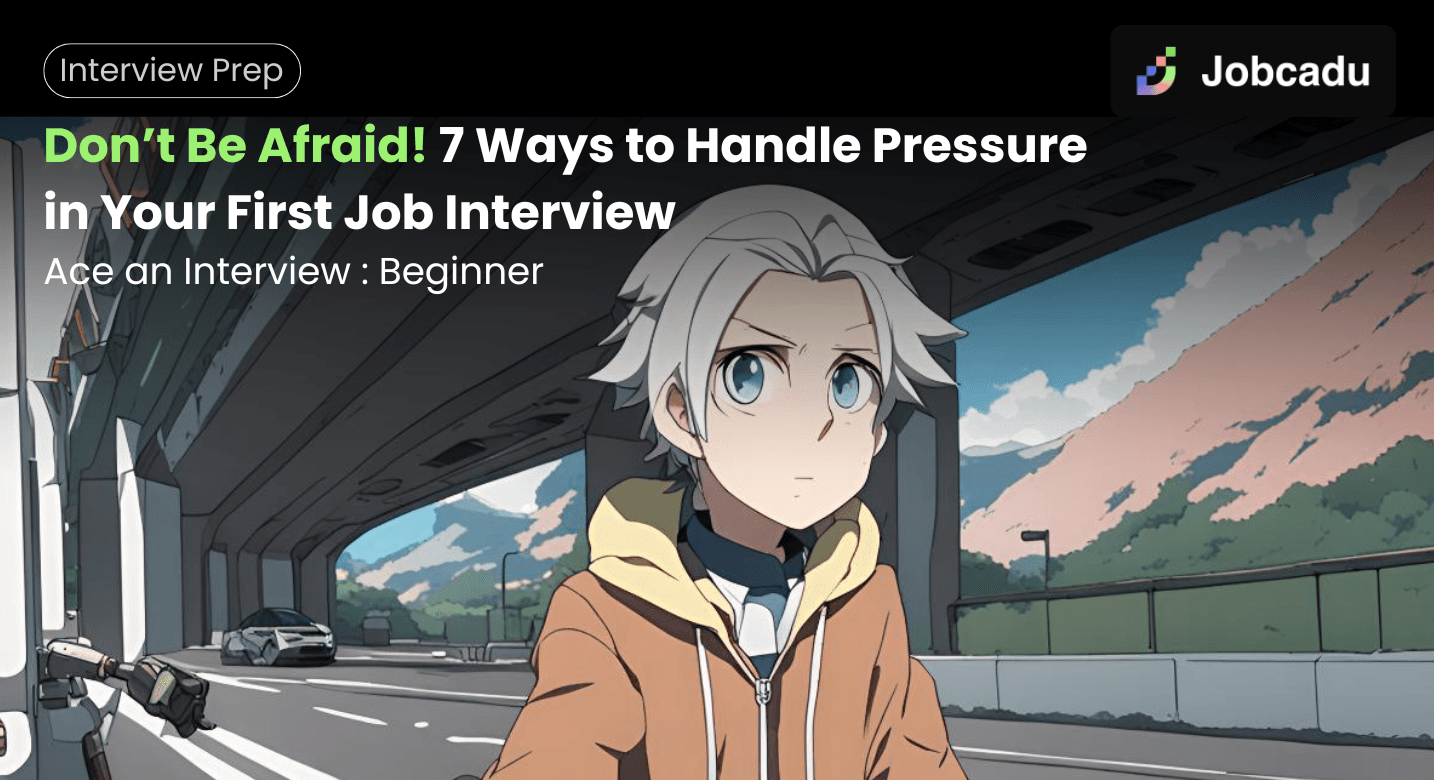Posted on February 27, 2025
Job Search
Tags:

Your first job interview can be challenging. The pressure may make you feel insecure, but with good preparation and the right mindset, you can turn this experience into a great opportunity. This article will introduce you to 7 ways to handle the pressure that many first-time interviewees face, helping you feel more confident in your interview.
A first job interview means facing something new and unfamiliar. You must undergo evaluation and meet high expectations, which are key factors causing pressure. Not knowing what to expect can make you feel even more uncertain. Some people may have experienced interviews for university admission, scholarships, or internships before, but a full-time job interview is different. However, everyone has their "first time," and it is completely normal to feel nervous.
Preparation is key to reducing stress. Researching the company and job position, practicing answers to common interview questions, and seeking advice from friends, seniors, or mentors can boost your confidence. Additionally, preparing documents and dressing appropriately will help you feel more ready and self-assured.
Even if you prepare thoroughly, nervousness is sometimes unavoidable. Instead of trying to eliminate it completely, focus on presenting yourself as best as you can. Show enthusiasm, and if needed, be honest about it being your first interview. Interviewers understand that a first-time interviewee may feel nervous, and minor stumbles are acceptable.
Maintaining eye contact and confident body language can help you feel and appear more composed. If faced with a difficult question, take a deep breath, slow down your response, and answer calmly using the STAR technique. Try not to focus on negative thoughts; instead, think of something rewarding to do after the interview to keep your mindset positive.
Once the interview is over, take time to review what you did well and what needs improvement. Asking for feedback from the interviewer can help you identify areas for growth. Additionally, noting unfamiliar questions or terms can guide your skill development for future interviews.
Most professionals have gone through multiple interviews before securing their jobs. If your first interview doesn’t go perfectly, don’t be too hard on yourself. Instead of dwelling on disappointment, focus on what you can improve for next time.
🔹 Q: How can I prepare to reduce pressure before an interview?
A: Prepare in advance, practice mindfulness, and boost confidence through rehearsal.
🔹 Q: What should I do if I feel extremely nervous during the interview?
A: Take deep breaths, think positively, and ask for a short moment to organize your response.
🔹 Q: What if I answer a question incorrectly?
A: Politely acknowledge the mistake and correct your answer with confidence.
🔹 Q: How is an online interview different in terms of pressure?
A: Online interviews may be slightly less stressful, but you should still ensure a professional setting and a stable internet connection. If possible, try to gain experience with face-to-face interviews as well.
A first job interview is a valuable learning experience that introduces you to the professional world. Prepare as well as you can, use the recommended stress management techniques, and remember that every experience is an opportunity to improve. Believe in yourself, and get ready for your next interview with confidence! 🌟